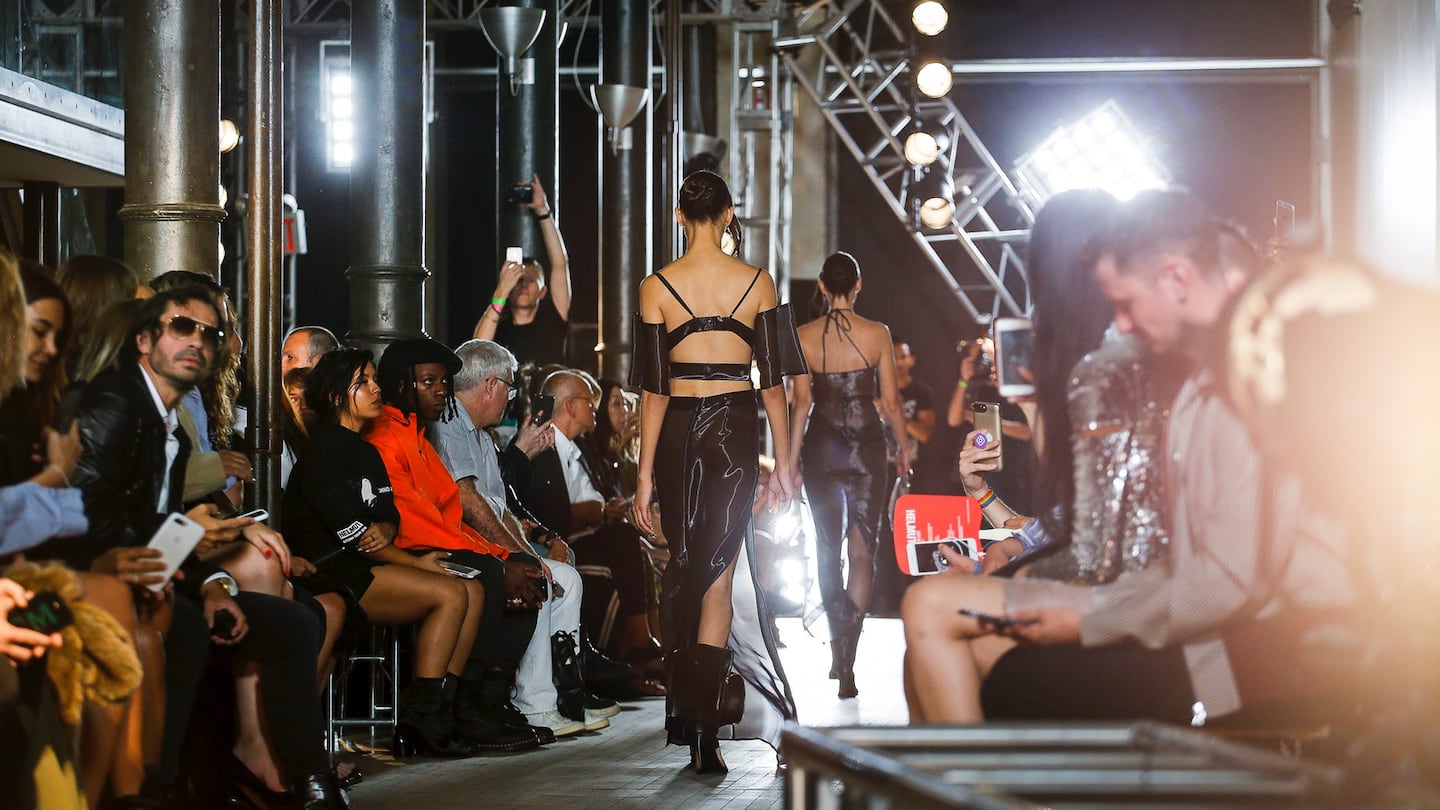
The Business of Fashion
Agenda-setting intelligence, analysis and advice for the global fashion community.

Agenda-setting intelligence, analysis and advice for the global fashion community.

NEW YORK, United States — Helmut Lang, the fashion house best known for its outsize role in defining the '90s aesthetic, is pivoting.
Earlier in August, the label — owned since 2006 by Fast Retailing, the Japanese conglomerate that controls seven brands including Uniqlo and Theory — began a series of layoffs that could affect up to 40 employees, including much of the production team, BoF has learned. Those layoffs are set to be completed by the end of this week.
The changes reflect yet another shift for Helmut Lang, which has cycled through a series of strategies since its namesake departed in 2005. The product range will be whittled down, with a renewed focus on denim. And while the collection will not become unisex, one design team will oversee both the men’s and women’s offering.
As a result of the restructuring, North American sales will be cut by nearly half. This year, the brand is expected to generate over $35 million in revenue in the region, according to a source, with total global sales approaching $60 million. For 2019, the company is slicing its North America sales projections to $20 million. The brand’s two directly owned and operated retail stores in New York and Los Angeles will remain open, for now, as the company focuses its efforts on re-energising its lagging wholesale business and growing e-commerce sales.
ADVERTISEMENT
According to sources employed by Fast Retailing, Helmut Lang has not been profitable in several years. The restructuring will likely lead the brand to profitability. While multiple entities have expressed interest in buying Helmut Lang from Fast Retailing, no formal offers have been made and the conglomerate has rebuffed all advances, sources said.
I had built an overhead and an organisation that, for a company the size of Helmut Lang, no longer worked.
When asked about the restructuring, Theory chief executive Andrew Rosen, who oversees the Helmut Lang business, said that his main goal is to bring focus to the brand. "Businesses have to operate differently today," he said. "Things have to be more streamlined, more efficient. We need to be quicker. I had built an overhead and an organisation that, for a company the size of Helmut Lang, no longer worked." Rosen declined to comment on financials.
Founded in Paris in 1986 by the Austrian-born designer Helmut Lang, the label is widely recognised for his minimalist, deconstructed, sometimes severe aesthetic, which continues to influence a wide range of brands to this day. At its peak in 1999 when Prada Corp bought a 51 percent stake in the company, Helmut Lang was generating more than $100 million a year in sales.
In 2005, Lang exited the fashion industry to pursue art and the company's trademark was acquired by Link Theory Holdings — a fully owned subsidiary of Fast Retailing — for an estimated €20 million, according to market reports at the time of the transaction. Eventually, Helmut Lang was repositioned as a contemporary brand, losing much of its original allure. In 2016, the label relaunched its women’s offering under designer Katayone Adeli. But when Adeli exited soon after her appointment, the strategy shifted once again.
Last summer, Rosen brought in British journalist Isabella Burley to be Helmut Lang's editor-in-residence as part of a move aimed at injecting new energy into the brand. Burley, the editor-in-chief of Dazed magazine, in turn, recruited Hood By Air designer Shayne Oliver to create a special collection that was revealed at New York Fashion Week in September 2017. After Burley and Oliver's stint at the brand concluded, V magazine founding editor Alix Browne was named Helmut Lang's next editor-in-residence. But another designer-in-residence was never installed. While Rosen said that there are no plans to do something similar again soon, he called the partnership "valuable," adding that it brought a "heightened awareness and relevance" to the label.
The primary goal for the rest of the year, sources said, is to get Helmut Lang's wholesale business, hurt by late orders and wider systemic challenges, back on track, with Browne and collaborator Brian Phillips, president and creative director of public relations firm Black Frame and creative agency offshoot Framework, remaining in the creative driver's seat. She and the team are expected to introduce a new denim concept in September, in time for New York Fashion Week.
Related Articles:
[ The Ghosts of Lang and MargielaOpens in new window ]
[ Helmut Lang Appoints New Editor-in-ResidenceOpens in new window ]
[ Hood By Air’s Shayne Oliver Joins Helmut LangOpens in new window ]
The fashion giant has been working with advisers to study possibilities for the Marc Jacobs brand after being approached by suitors.
A runway show at corporate headquarters underscored how the brand’s nearly decade-long quest to elevate its image — and prices — is finally paying off.
Mining company Anglo American is considering offloading its storied diamond unit. It won’t be an easy sell.
The deal is expected to help tip the company into profit for the first time and has got some speculating whether Beckham may one day eclipse her husband in money-making potential.